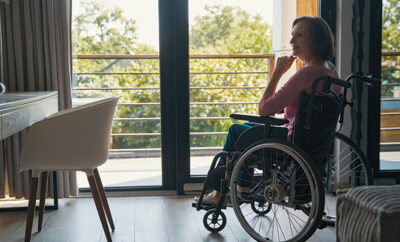
What Can We Learn from SuperAgers
Within the next decade, one in six people worldwide will be over 60. Even if you’re not part of this group, the increased care needed for the elderly will affect everyone.
With Alzheimer’s and dementia on the rise, researchers at Northwestern University began studying what they call SuperAgers. These are adults over age 80 who have the memories of people at least 30 years younger. By studying those who have avoided memory problems, they hope to understand “what is going right with aging, as opposed to what is going wrong.”
The SuperAging Research Program has been studying superior memory in older adults since 2008. Although the program accepts only about ten percent of those who apply, a high IQ isn’t required. Researchers are most interested in elderly people who have a strong ability to recall personal experiences from the past, known as episodic memory. Other research institutions, including Harvard University and AFAR, or American Federation for Aging Research, have also undertaken studies of older people with mental or physical capabilities of those many decades younger.
According to Dr. Nir Barzilai of AFAR, “SuperAgers’ chronological age does not reflect their biological age, which allows them to work longer, enjoy post-retirement interests and live life to the fullest.”
The SuperAger Brain
Dementia is diagnosed when the loss of critical thinking skills interferes with daily living. There are several types of dementia; the type that comes with Alzheimer’s affects memory skills. Many factors determine whether you will experience dementia, including how long you live (your chances double every five years after age 65), your family history and your gender (women are more likely to get Alzheimer’s).
Through cognitive testing and 3D brain scans, Northwestern researchers found that the brains of SuperAgers shrink at a slower rate than normally aging adults. Losing brain volume more slowly seems to protect SuperAgers from dementia.
Physical SuperAgers
Harvard Health defines physical SuperAgers as people in their 70s or 80s with the aerobic capacity of a younger person. After age 30, we typically lose 10 percent of our aerobic capacity every decade. Harvard researchers have found a correlation between having a high aerobic capacity and a decrease in dementia, cardiovascular disease and lethal falls. Following a fitness program that includes cardio exercise can have big paybacks as we age.
SuperAger Healthy Habits
Members of the SuperAger population in the Northwestern study possess some common traits and habits. They live an active lifestyle and take part in regular exercise. Researchers have found being obese triples the risk of developing Alzheimer’s disease; being active helps SuperAgers maintain a healthy weight.
SuperAgers challenge themselves both physically and mentally. They do word puzzles, read widely, take classes and engage in other activities that stimulate and engage the brain. Experts say that going outside your comfort zone challenges the brain in new ways. Mental challenges suggested by Harvard Health include tutoring ESL students, working as an election volunteer, learning a new language or becoming proficient in a musical instrument.
Another important trait of SuperAgers is that they have strong social networks. According to Dr. Emily Rogalski of Northwestern University, the area deep in the brain that plays a role in social awareness is larger in the brains of SuperAgers. Although having a strong social network doesn’t mean you won’t get Alzheimer’s, it doesn’t hurt to maintain strong social ties as part of a healthy lifestyle that promotes healthy aging.
Being a SuperAger doesn’t mean you don’t get to have any fun. Many participants in the SuperAging Research Program indulge in alcohol on an occasional or nightly basis. According to researchers, moderate drinkers have a 23 percent lower risk of developing memory problems or Alzheimer’s compared with nondrinkers. Moderation is the key, however, since over-drinking can increase the risk of Alzheimer’s.
Could You Become a SuperAger?
Scientists are still working to understand the phenomenon of SuperAgers, but we can all benefit from the research. Adopting the habits of SuperAgers is no guarantee that we’ll stay sharp in our later years, but they can make an important difference in our health and well-being at any age.
We may avoid new challenges as adults because we don’t want to become frustrated, but learning any new skill requires perseverance. We may think that we’re too old to undertake an aerobic exercise program, but anyone can start slowly and build their aerobic capacity with regular exercise, provided they have no physical limitations. Taking on new skills and challenges can be easier when you have community support, which can also contribute to social networking. Strong social connections are important antidotes to loneliness and depression and can improve anyone’s mental health.
A loss of physical and mental capabilities may be part of aging, but it’s not inevitable.
Sources: CNN.com, health.harvard.edu and brain.northwestern.edu.







